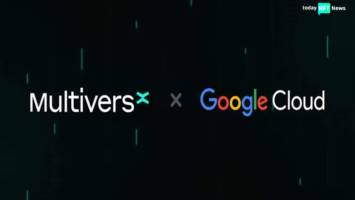SNEAK PEEK
- To build the framework for an open metaverse, the companies harness the power of games.
- For Ryugukoku, security will be another critical concern.
- Deputy Minister Fumio Kishia has established a DAO to help government departments implement Web3 technology.
Fujitsu is building an interoperable metaverse structure called RYUGUKOKU (TBD) in partnership with nine other businesses. The alliance seeks to aid in developing the framework necessary for companies to participate in Web3 marketing, work reform, and customer experience projects.
To deliver a customized metaverse experience, the platform will make use of “auto-learning avatars,” “Pegasus World Kit,” and “Multi-Magic Passport.” Prime Minister Fumio Kishia has invested in digital transformation services, and the Digital Ministry has established a DAO to assist government departments in implementing Web3 technology. Japan has been attempting to incorporate Web3 technology into its national agenda.
Ryugukoku also places a high priority on security. TBT Lab Group, major Japanese financial institutions, and corporations will work together to put in place user identity authentication, payment systems, and data infrastructure insurance.
According to plans, the project will start on the island but eventually be moved “to companies and government agencies outside of Japan.” The idea was first presented by Hajime Tabata, a game developer and Web3 adviser for the Japanese government.
From the perspective of digital ownership, Fujitsu’s announcement refers to NFTs, yet cryptocurrency regulation in Japan has always been rather rigorous. A policy proposal on Web3 by the Japanese Liberal Democratic Party prompted the creation of an interoperable metaverse.
By amassing knowledge and experience to make Japan the world’s center of responsible innovation, Japan can promote a globally competitive business climate and show leadership in international regulatory talks.









